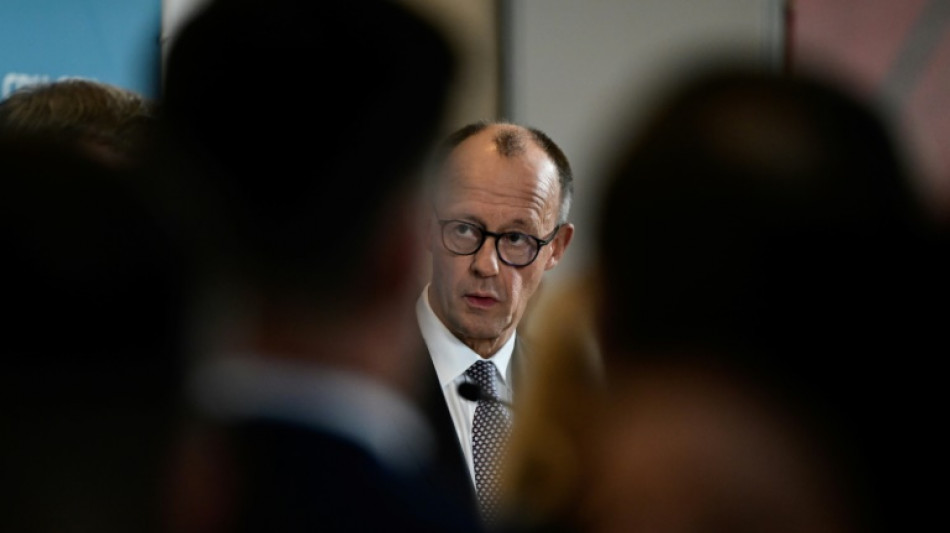
-
 France charges Briton over staged Disneyland 'marriage' with child
France charges Briton over staged Disneyland 'marriage' with child
-
Israel says agreed to Trump plan for ceasefire with Iran
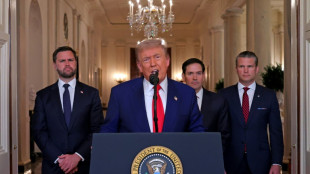
-
 Brazil records 62% jump in area burned by forest fires: monitor
Brazil records 62% jump in area burned by forest fires: monitor
-
It will be 'big and punchy': Athletics chief Coe looks to future
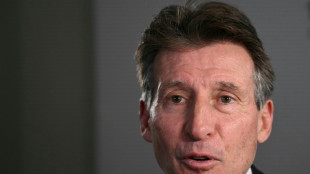
-
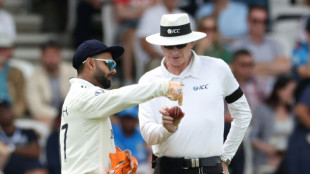 India's Pant reprimanded for dissent in first Test
India's Pant reprimanded for dissent in first Test
-
Oil prices drop as Israel agrees to ceasefire proposal

-
 UK aims to tackle Google dominance of online search
UK aims to tackle Google dominance of online search
-
'Not at the level': Atletico left to ruminate after Club World Cup KO

-
 Border confusion as Thailand shuts land crossings with Cambodia
Border confusion as Thailand shuts land crossings with Cambodia
-
Vietnam puts 41 on trial in $45 mn corruption case

-
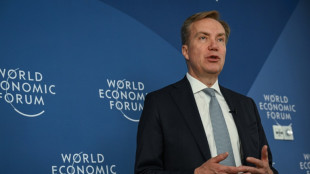 World facing 'most complex' situation in decades: WEF
World facing 'most complex' situation in decades: WEF
-
Trial of Sean Combs approaches final stretch

-
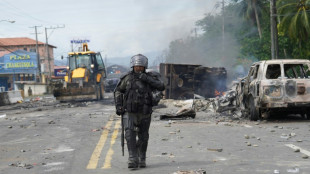 Panama says has regained 'control' of restive province after months of protests
Panama says has regained 'control' of restive province after months of protests
-
Trump says Iran-Israel ceasefire in force
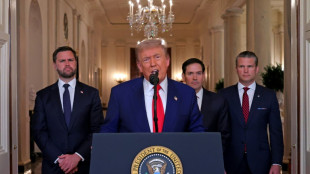
-
 Pharrell bigs up brown denim as Paris fashion week starts
Pharrell bigs up brown denim as Paris fashion week starts
-
'Companions' ease pain of China's bustling, bamboozling hospitals

-
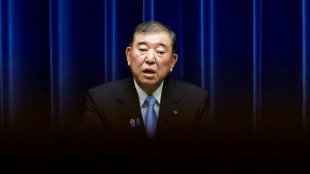 Japan PM to face tough upper house election on July 20
Japan PM to face tough upper house election on July 20
-
Judge tells Australian mushroom murder jury to put emotion aside

-
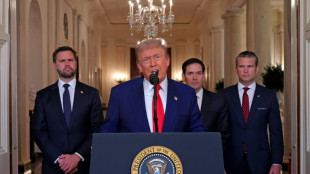 Israel says 3 killed in Iran strike after Trump's ceasefire announcement
Israel says 3 killed in Iran strike after Trump's ceasefire announcement
-
Messi's Miami and PSG progress to set up Club World Cup reunion

-
 Rock on: how crushed stone could help fight climate change
Rock on: how crushed stone could help fight climate change
-
Porto, Al Ahly out after sharing eight goals in thriller

-
 Glamour, gripes as celebs head to Venice for exclusive Bezos wedding
Glamour, gripes as celebs head to Venice for exclusive Bezos wedding
-
Messi to face PSG after Miami and Palmeiras draw to go through

-
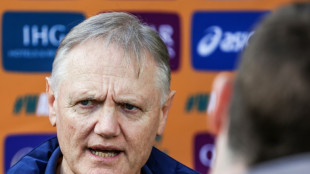 Schmidt warned he must release Wallabies for Lions warm-ups
Schmidt warned he must release Wallabies for Lions warm-ups
-
Palmeiras fight back against Inter Miami - both teams through

-
 With missiles overhead, Tel Aviv residents huddle underground
With missiles overhead, Tel Aviv residents huddle underground
-
Virgin Australia surges in market comeback

-
 Asian stocks up as Trump announces Iran-Israel ceasefire
Asian stocks up as Trump announces Iran-Israel ceasefire
-
Flatterer-in-chief: How NATO's Rutte worked to win over Trump
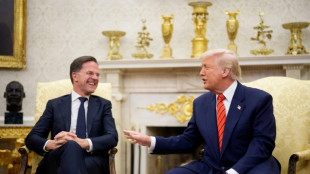
-
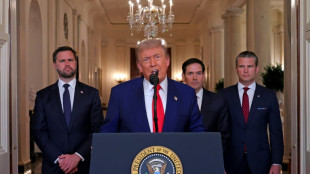 Iran signals halt to strikes if Israel stops
Iran signals halt to strikes if Israel stops
-
NATO summit seeks to keep Trump happy -- and alliance united
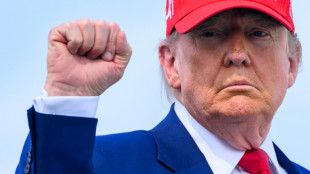
-
 Russian drone attacks kill three in northeast Ukraine
Russian drone attacks kill three in northeast Ukraine
-
Better than gold: how Ecuador cashed in on surging cocoa prices

-
 Millions in US sweat out first extreme heat wave of year
Millions in US sweat out first extreme heat wave of year
-
Pro-Palestinian protest leader details 104 days spent in US custody

-
 Gender not main factor in attacks on Egyptian woman pharaoh: study
Gender not main factor in attacks on Egyptian woman pharaoh: study
-
'Throwing the book away' with no preparation for next season: Bayern's Kompany

-
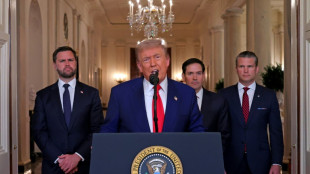 Trump announces ceasefire between Iran and Israel
Trump announces ceasefire between Iran and Israel
-
US Supreme Court allows third country deportations to resume

-
 Oil prices tumble as markets shrug off Iranian rebuttal to US
Oil prices tumble as markets shrug off Iranian rebuttal to US
-
Rishabh Pant: India's unorthodox hero with 'method to his madness'
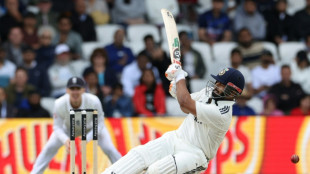
-
 PSG ease past Seattle Sounders and into Club World Cup last 16
PSG ease past Seattle Sounders and into Club World Cup last 16
-
Atletico win in vain as Botafogo advance at Club World Cup

-
 Osaka, Azarenka advance on grass at Bad Homburg
Osaka, Azarenka advance on grass at Bad Homburg
-
Haliburton latest NBA star with severe injury in playoffs

-
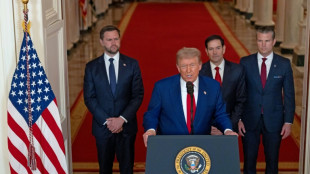 Trump wants quick win in Iran, but goal remains elusive
Trump wants quick win in Iran, but goal remains elusive
-
Iran attacks US base in Qatar, Trump says time to make peace

-
 Kasatkina falls, Fonseca secures first win on grass at Eastbourne
Kasatkina falls, Fonseca secures first win on grass at Eastbourne
-
Iran attacks US base in Qatar in retaliation for strikes on nuclear sites


Germany's next leader grapples to boost defence spending
Germany's next leader, conservative Friedrich Merz, has raised the alarm over European defence but the clock is ticking for him to muster the funds needed to refurbish the armed forces.
Only hours after his party's election win Sunday, Merz said his "absolute priority" would be to strengthen European security as US President Donald Trump had shown indifference to the continent's fate.
The chancellor-in-waiting will however have to find a way to work within Germany's budgetary straitjacket -- which limits new borrowing to 0.35 percent of GDP -- or find a way to escape it.
The make-up of the incoming parliament makes it challenging to change the constitutional debt brake.
Far-right and far-left parties critical of extra defence spending will have enough seats to block any amendment to Germany's Basic Law.
Merz has suggested he is open to an unusual manoeuvre: recalling the current Bundestag before the new one is formed to swiftly approve new money.
According to Bloomberg News, he is in discussions to top up Germany's special defence fund with another 200 billion euros ($210 billion).
Racing the changes through before MPs take their seats on March 25 "will be a challenge, but should be doable if Merz really pushes for it", said Berenberg Bank analyst Holger Schmieding.
- 'Independence from USA' -
Trump's direct overtures to Russian President Vladimir Putin to end the war in Ukraine have blindsided European capitals and left them feeling dangerously exposed.
Merz said Sunday that "independence from the USA" in defence matters was a strategic necessity and that Germany, long reluctant to throw its weight around, would have to do its part.
Estimates by defence experts put the extra funding requirement at around 200 billion euros, the head of the IW Koeln economic institute Michael Huether told the Rheinische Post daily.
But getting the necessary two-thirds majority in the new Bundestag was "hardly conceivable" in the face of potential opposition from the far-right Alternative for Germany (AfD) and far-left Die Linke, he said.
"An exception to the debt brake is practically unavoidable to ensure the Bundeswehr is adequately equipped," Defence Minister Boris Pistorius, a senior figure in the Social Democrats, told Bild newspaper.
Quizzed on Tuesday on the idea of acting before the new parliament sits to push through changes, Merz conceded Germany was in a "difficult situation".
"We now have four weeks to think about it," Merz said, adding that he would hold confidential talks with the Greens, Social Democrats and the liberal FDP.
Such a post-election manoeuvre has precedent. In 1998, MPs approved a NATO-backed intervention in Kosovo, Germany's first active combat operations since World War II.
- 'Spectacular U-turn' -
As it stands, Germany is just scraping to meet NATO's annual defence spending target of two percent of GDP with the money from a 100-billion-euro fund established in the wake of Russia's full-scale invasion of Ukraine.
But the one-off spending pot is quickly being used up and European allies are now talking about further boosting defence investments in the face of Russian aggression and uncertain support from Washington.
The proposal for a limited fund was only the "second-best option", the head of the IfW Kiel think tank Moritz Schularick told the Rheinische Post.
"The most decisive and far-sighted step to do this would be to exempt defence spending from the debt brake," Schularick said.
Special funds only provided limited planning certainty for the companies set to supply Europe with weapons "because it is unclear what sums will be available afterwards", he said.
The Greens, whose votes would be needed for a constitutional change, called for a full "reform of the debt brake" -- an option still shunned by Merz.
"A reform of the debt brake in the near future is out of the question," Merz said Tuesday.
For another option it was "too early to say", he said, adding that an agreement on extra funding would be "difficult".
Any spending boost would be a "spectacular U-turn for Merz", Schmieding said, and would send an "early message to Trump and Putin that Germany is raising its military spending and will stand by Ukraine".
The future chancellor's opponents were already forming their lines.
AfD leader Alice Weidel, whose party scored a record 20 percent of the vote and had campaigned against help for Ukraine, accused Merz of "election fraud".
"This is politics against the will of the voters!" she said on social media platform X.
K.AbuDahab--SF-PST
